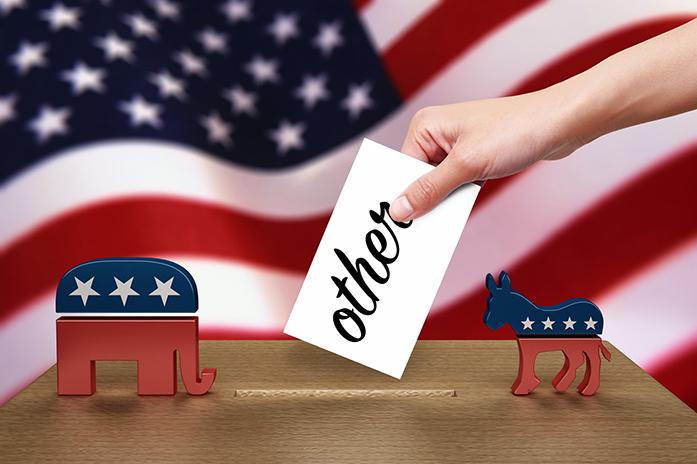By Vivian Medithi
I was 12 when my parents became full-fledged U.S. citizens. I remember their spending weeks quizzing each other on American history facts most citizens by birth couldn’t even pretend to know. I remember sitting in an antiseptic room in Des Moines during their citizenship ceremony, thinking about all the families like mine and unlike mine, not from here but still here, living, breathing in these United States.
I tell this story to explain why my parents take voting very seriously. Voting is a hard-earned right, and that makes it important.
In order for voting to be important, we have to put our faith in the electoral system, to trust that the system is not rigged. Donald Trump, a man not too fond of immigrants, has taken to calling the system rigged, only when he’s behind in the polls.
This behavior is childish, but the Republican presidential nominee isn’t known for his maturity.
But he wants people to go out and vote. He isn’t known for his consistency either.
Someone else who isn’t known for her consistency is Hillary Clinton. I heard this at a party in support of Bernie Sanders in January. Clinton has evolved on different issues. That’s what the campaigner on the T. Anne Cleary Walkway told me. Clinton is not the only woman running for president, but I heard voting third party is throwing my vote away from “The Simpsons.” Or, worse, that voting third party is a vote for Trump.
That’s not how democracy works. I know, I know, I’m not being pragmatic. But if we choose to vote, we are implicitly saying that we believe that the system is not rigged, that our vote matters, and that democracy is working. If we believe in those three things, third-party votes are valid by definition, even if you do not like them. A vote for Trump is a vote for Trump, and whether you like it or not, you have to accept it at the polls.
Third-party voting or political abstention are options open to everyone who has the right to vote. Voting for someone is an expression of support, and you should vote your conscience, if only for the sake of the moral high ground. If neither Clinton nor Trump has won your support, I believe you should vote for neither and not be coerced into voting for someone you do not support.
Clinton supporters are right: She is vastly more qualified for the presidency than Trump, an alleged sexual predator and public dunce, a racist and a xenophobe, a TV star and a politician. But to pretend Clinton is without her faults is a foolish endeavor. If you believe the things leaked documents have revealed about Clinton do not matter to you, or are not that bad, that is your prerogative. Pretending the election has to be either-or insults others’ intelligence, and that is a surefire way to lose votes and alienate key demographics in critical swing states.
My parents are voting, and I am, too. I remember that even though I did not have to struggle for my right to vote, there are many, past and present, who did and do. But that is just my story. Voting is personal, and stories are different. If you have done your research and your story says voting in this election isn’t right for you, then do not. Voting is a right, and that means it is unconditional.



